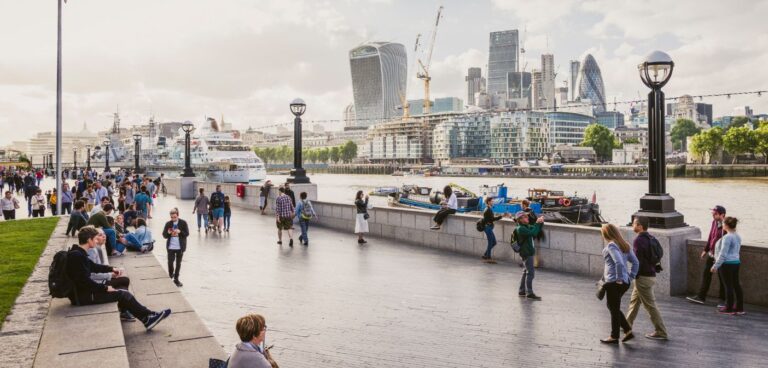Cross River Partnership (CRP), a non-profit partnership organisation, has released its latest report which looks into four diverse London street space schemes, the problems faced and the practical recommendations for the future of the capital’s urban spaces
This report, The Lived Experience of Our Streets: A People First Vision for London’s Streets, reimagines the function of streets – how people move, share, pick up, drop off, shop, explore, work, and play. It provides first-hand user accounts to the current challenges faced and what can be done to put people first in street design to improve accessibility, functionality, social interaction and community resilience.
It aims to provide local authorities and landowners with guidance to build the case for the removal of unnecessary clutter on streets and integrate healthy streets indicators as an intrinsic element of design. The report also recommends the provision of space and infrastructure for residents, businesses and visitors to travel sustainably to and from these destinations, in turn improving air quality, reducing congestion, and delivering on carbon emissions targets.
CRP said since the industrial revolution, streets have been designed to cater for motor vehicles to move goods around the city. The movement of vehicles has continued to increase throughout the years and the streets that were once used by horse and cart have been replaced by motor vehicles, HGVs and vans. The increased congestion has continued to have an adverse effect on air pollution and some of those trying to use the street space simultaneously.
Furthermore, the report found the Covid-19 pandemic, and other issues that London faces including Brexit, the climate emergency, shifts to online shopping, inequalities, and an ageing population, have presented a timely opportunity for London’s local authorities and strategic agencies to work together to implement practical solutions to the issues regarding transport, footfall, environment, and functionality of London’s crowded street space.
The report has been developed as part of the Central London Sub-Regional Transport Partnership, a collective of senior transport officers and directors from ten London boroughs who provide strategic advice for, and on behalf of, Transport for London. The report has been prepared by the Nooma Studio Consutancy.





